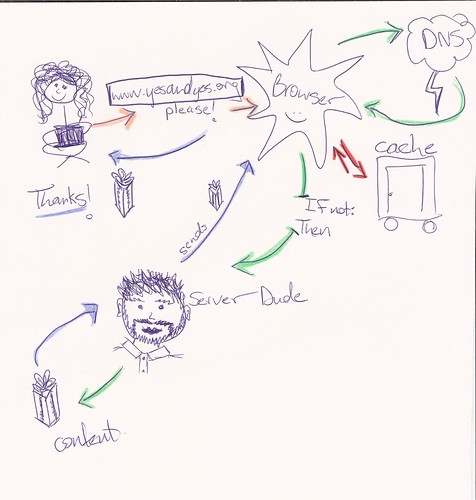An alternate phrasing of the anti-elitist objection is to say that a DIY U future will automatically perpetuate the meritocracy, by giving even more advantages to the best students. To which, I have a couple of different answers.
Are we really against having a true meritocracy, in the sense of a society that rewards excellence? Yes and no.
I think there’s a basic fundamental tension between democracy and meritocracy. This tension was actually described quite well by Michael Young, who coined the term “meritocracy” in a satire written in Britain in the 1950s:
Young’s fictional narrator describes that on one hand, the “stolid mass” or majority is not the greatest contributor to society, but the “creative minority” or “restless elite”. Yet on the other hand…from such adherence to natural science and intelligence, arises arrogance and complacency.The casualties of this progress described by the phrase “Every selection of one is a rejection of many”.
The major problems with meritocracy as it is currently practised in America, as I see them:
1) Since I don’t have as strong a faith as, say, Charles Murray, author of The Bell Curve, in the genetic component of socioeconomic advantage I have to believe that the large racial and economic gaps that persist in our educational system are the result of systematic inequality, not differences in innate ability. Therefore it follows that a massive injustice is being perpetuated on thousands of children who get crappy instruction in crappy schools and never get a decent chance to go to college, even though if you had stuck them in a top-flight public school from 1st grade they’d definitely be Ivy League material.
But not enough is being done about this, and I think that’s partly because the New Elite have so much faith in the status quo that has put them on top.
2) The self-identified “elite” do tend to be hothouse flowers who look with disdain on the mainstream choices of their fellow Americans from fast food and evangelical religion to reality TV. Not only is this an annoying attitude when you’re on the receiving end (I know this because I’m from the South and people are always slagging on the South in front of me) it has fed the flowering of a defensive ignorance from folks who choose not to believe in, say, climate change because they hate Al Gore.
3) There’s a lack of diversity in the talents that we recognize, cultivate and reward as a society. Working with your hands, affinity for the natural world, a tendency to support and build community rather than strive after individual achievement are just three traits neglected by the self-identified “elite.”
Here’s how I believe a DIY U future can help:
1) I believe that there are super smart autodidacts out there stuck in crappy schools, or no schools at all, in the US and developing countries, for whom the provision of Ivy League quality courseware for free constitutes a bonanza of educational manna. Maybe there aren’t a billion William Kamkwambas out there. Say there are only a few dozen in each country, wouldn’t that make the money already invested in OER come out into a good investment?
2) Opening up the walls of the Ivy League & other elite colleges can demystify what goes on there and possibly even endear it to the public. There’s a big difference in the way people feel about their public library (like saying, This is OUR public library) vs. how they feel about the campus library, or the college campus in general; there’s a difference in the way people feel about the campus sports arena, which they visit regularly, vs. some weirdo physics lab. On the other side of things, opening up the walls of elite universities could foster some much-needed humility for the self-identified elite. I know for me personally, when I have to go explain my Yale-bred thinking to the students and faculty at Kansas City Kansas Community College, it leads to much soul-searching and posts like this.
3) The open, decentralized, nonhierarchical pursuit of knowledge can foster a greater diversity of topics and pursuits than that accommodated in even the most commodious course catalogue. Whenever and whereever education consists even partly of people getting together to learn whatever they want, we naturally see the proliferation of study of practical, hands-on skills like composting and bicycle repair and yoga and basic web design and guitar and Spanish. This is good because we may need these kinds of skills a lot more in the sustainable future that we’re hopefully evolving toward.

